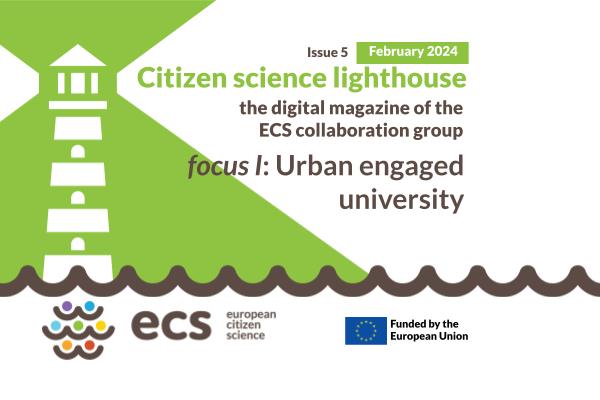
Urban engaged university
Floor
Jan. 31, 2024, 10:34 a.m.
In October 2022, the Research Council of the Vrije Universiteit Brussel launched the Citizen Science Contact Point (CSCP) to support its ambitions as an urban-engaged university. As the name suggests, the research community at Vrije Universiteit Brussel can address the Citizen Science Contact Point for all things citizen science. But the larger aim, as stated in the policy plans, is to stimulate both the quality and the quantity of funded Vrije Universiteit Brussel projects applying a citizen science approach, and to promote a culture in which citizen science is considered as a fully-fledged research method.
The interactive mural created within the EUTOPIA TRAIN project
Within these strategic goals, training and education in citizen science plays a vital role. Therefore, these activities make out a considerable part of the support services offered by the Citizen Science Contact Point, targeted at the researchers at the university. The framework of the EUTOPIA TRAIN project has enabled this offer to be developed and shared within the context of a European University Alliance. For example, as the task lead on citizen science, the Citizen Science Contact Point has started a series of peer learning sessions called the Citizen Science Clinics. The outcomes of these sessions were gathered in an interactive mural. Next, a survey among researchers helped to identify the topics of two webinars organised together with UNICA: “How to engage citizens in your research?” and “Successful strategies in applying for citizen science funding”. But the most elaborate endeavour regarding the education and training of researchers was the publication of EUTOPIA’s Citizen Science Starter Kit, which has received praise from all different corners of the European citizen science community.
Based on the Starter Kit, the Citizen Science Contact Point has developed a 90-minute in-person training called An introduction to Citizen Science, piloted in June 2023 at VUB’s Ph.D. Introduction Day and as an online format for the EUTOPIA SIF fellows in November of the same year. In 2024, this will be turned into a 4-hour interactive workshop: “Explore the possibilities of citizen science” (1ECTS). Additionally, a Citizen Science Winter School, co-organised with our sister university, the Université libre de Bruxelles (ULB), will serve as a more advanced deep-dive training offer for researchers who want to learn more or actually want to start a project.
Our specific situation presents several challenges. As we have the entire Vrije Universiteit Brussel research community of (2400+ academic and scientific staff, 2000+ doctoral researchers) as our target audience, it’s not easy to determine training topics and content that appeal to the entirety of such a diverse group. Managing a citizen science community of practice which depends, to a large extent, on interest and goodwill is also challenging. More specifically, given the high demands, giant workload and pressing time constraints researchers are facing nowadays. Additionally, being embedded in the Research Department, we do not have a direct pathway into the Department of Education to plant the seeds for citizen science in BA and MA programs – nor is this a priority in light of the Citizen Science Contact Point’s goals. On the other hand, we’re directly connected to (our colleagues of) the Research Training & Development Office, whose support and know-how are crucial to provide our researchers with proper training and to make sure they’re aware of our offer. Being part of the Research Outreach & Communication Office, we are also very closely connected to Vrije Universiteit Brussel’s Science Shop and public science outreach projects, enabling us to look for optimal synergies and integrate both our activities as much as possible.
On the EUTOPIA level, we’re equally meeting certain challenges regarding citizen science training, but of course, we come across exciting opportunities as well. In our experience, the difference in citizen science support by (national, regional and local) governments and research policies also shows in different levels of citizen science interest and expertise at our partner universities. In that sense, it is not always easy finding the right people to work with, nor to define a common ground and vision. Luckily, such a large European alliance network also allows us to draw from each other’s experience and lay the foundations for developing and expanding the EUTOPIA Open Science & Open Knowledge Training portfolio together. This is the case in EUTOPIA TRAIN’s follow-up project, EUTOPIA MORE, to deepen the disciplinary and community adoption of Open Science practices.